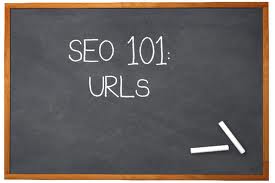An often overlooked aspect of good search engine optimisation (SEO) is a websites URL structure. Improve your URL structure for better SEO. Even with fantastically written content, allowing malformed, ill thought out URL’s to appear on your website, can have a hugely detrimental effect on your website’s overall SEO strategy. Using the below tips for better URL structure will hopefully help you with some of the more common URL related challenges of SEO.
Word Seperators & Delimiters – It is generally regarded that hyphens tend to yield better results as well as improving readability, however, it really makes little difference whether you decide to use hyphens or underscores in your URL’s. Do NOT however use any other characters or spaces or you’re just asking for trouble.
URL Length – When trying to decide on url’s, shorter is always deemed to be better. However, in my experience, internal pages with long tailed URL’s work better, especially for targeted traffic. Using up to 4 or 5 keywords yields better results and avoid using abbreviations, stop words, or really short SEO terms.
Keywords – Use of good, relevant keywords are vital to any on-going SEO strategy and should as a matter of course be used in URL’s. However, you do need to take care not to over stuff your URL’s with too many keywords as this will not only trigger alarm bells with the search engines but also make you look less trustworthy to your readers. Your keywords/URL’s should be descriptive enough for both your users and search engines to know what the page is about. As with page content, it is all about context and relevancy.
Numbers – Refrain from using numbers in your URL’s. Unless it is absolutely necessary and crucial do not use numbers in URL’s. Numbers in URL’s can be mistaken for dates if formatted in certain ways and may adversely affect your page making it look outdated.
Using Redirects – One of the main hurdles in updating a website, changing a CMS, URL structure and updating your SEO is how to make sure an existing page’s rank and authority is transferred to the newly updated page. Also bear in mind that your old pages would be indexed in a multitude of search engines, directories and linked from other sites. Coming in from an old link will often be met with the dreaded 404 – page cannot be found error unless some form of redirect script is used. A 301 redirect (meaning a permanent change of URL) is the most effective and safest form of URL redirection that should be used in order to prevent both user and SEO strategy problems.
Directories – I always advise against creating any sort of directory on a website, unless you have 500+ live pages. Unless planned properly, directories are difficult for both search engines and users to understand and pose a risk to your overall SEO strategy. Most clients want to use directories as they want to categorise pages and content under relevant headings, however, internal linking strategy, use of breadbrumbs and many other methods are better and will get better results.
Speak to one of our SEO experts if you would like advice on any of the above or you may want to take advantage of our free SEO health check which would highlight any of the above areas (and a lot more). If you are already using an SEO company or consultant, then it’s worth listening to their advice as although it may seem that something like URL structure is insignificant, it can have a profound effect on your website’s overall SEO strategy.